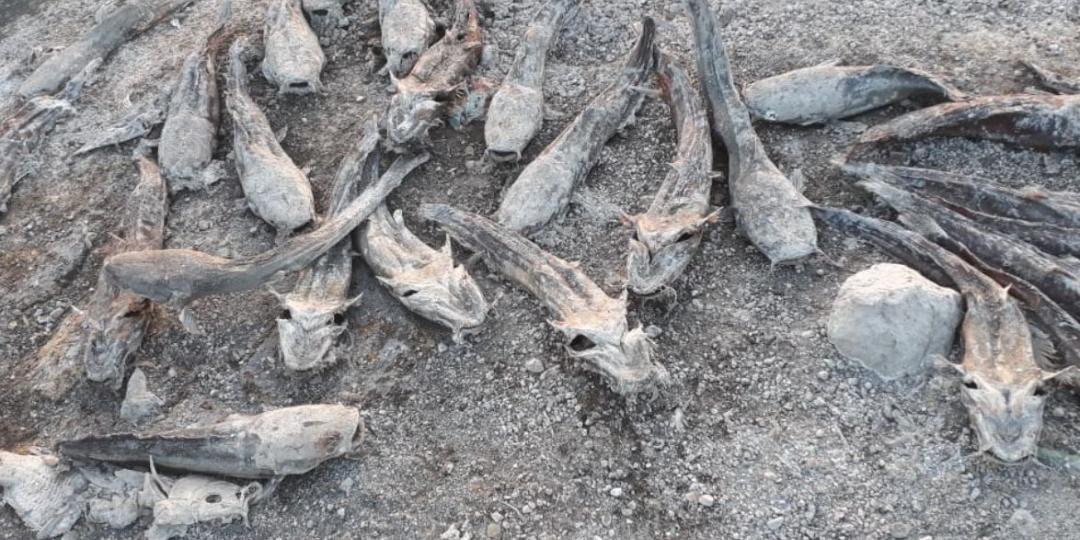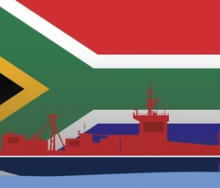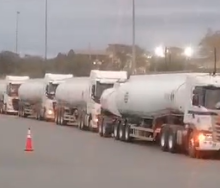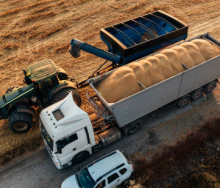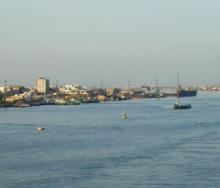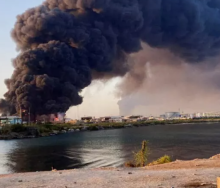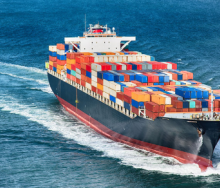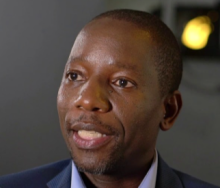Aid foundation Gift of the Givers has donated eight truckloads of fodder to farmers in Graaff Reinet where the drought is taking its toll.
Such is the state of thirst and famine among flocks, writes Estelle Ellis, “if ewes have twins one is inevitably stillborn.”
Zola Hanabe, chair of the Emerging Farmers’ Association, told the journalist she had recently lost a bull worth R45 000.
“I don’t sleep at night anymore. Early in the morning I sit in my house but I am scared to go outside. I don’t want to see which of my cattle has died overnight.”
Gift of the Givers also trucked several interlinks carrying bottled water and tankers into town recently, bringing relief to communities in need.
On the eve of its donations to the historic town in the East Cape, Gift of the Givers said: “The Nqwebe Dam in Graaff Reinet is empty, dead fish are visible everywhere, boreholes have run dry, desperate residents collect water from unhygienic drains, and children are pushed away from water tankers as residents fight for the little water that arrives.”
Last Monday, as 6-10mm of rain fell across this part of the Karoo, it also emerged from the South African Weather Office in Port Elizabeth that the little precipitation that is predicted for the area for the rest of the year will most likely dry up early in 2020.
Meanwhile, the low levels of stored water that remain or are drilled from below and pumped by the local Beyers Naude Municipality are often badly affected by crumbling infrastructure that, when not running dry because of interrupted electricity, spews out rusty silt water.
When Gift of the Givers pulled into uMasasaki Township outside Graaff Reinet, rallying people with loud-hailing calls of “water” and its Xhosa equivalent, “manzi”, queues quickly formed and a picture of dire need emerged.
“The main issue of supplying water to all communities is based on a simple reality that too little water reaches the main storage tanks in the lower lying areas to automatically let the booster pumps kick in to pump water to the higher reservoirs”, Gift of the Givers said in a statement.
It results in “water always being available in the lower part of the town but leaving people on the higher ground completely dry”, which is where most of the town’s impoverished residents live.
One of the unemployed people queuing for water, a mother of three aged one, five and 11, told Ellis she had to measure off water cup-for-cup to make it last, lest she ran out and was forced to buy water at R7 a bottle.
Gideon Groenewald, a hydrologist for the foundation who spoke at a crisis meeting some farmers couldn’t attend because they lacked the money to pay for fuel, said the painful irony of Graaff Reinet was that is sat on millions of litres of aquifer water.
With two other science degrees in geology and palaeontology to his name, Groenewald, who is also devoutly Christian, said bringing the water to the surface would be too costly and that people should remain faithful in the face of such dire prospects for survival.
Further afield in Sutherland in the Northern Cape, flocks of sheep have reportedly dwindled from 450 000 to below 40 000 as farmers sell livestock in a desperate bid to see them survive.
In nearby Fraserburg only a few souls remain, the farming community having all but turned into a ghost town.
And in Aggeneys, much further north across the parched plains of the Tamkwa Karoo, word is yet to filter through about when government will release the R30 million in aid that Deputy President David Mabuza pledged during a recent visit to the little-known hamlet.
It seems that Gift of the Givers’ description of Graaff Reinet as “a town on its knees,” clearly applies to other places in the Karoo.
